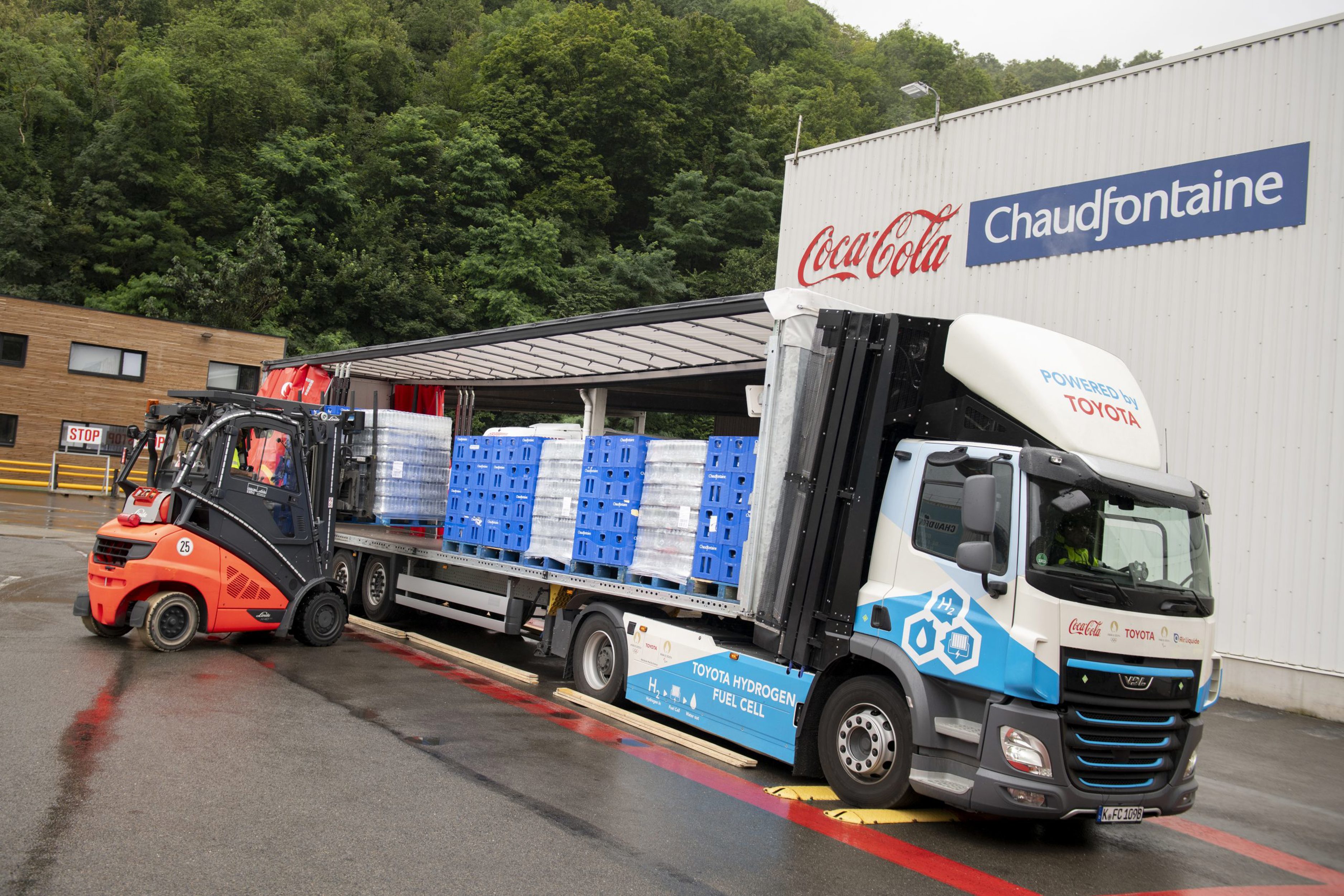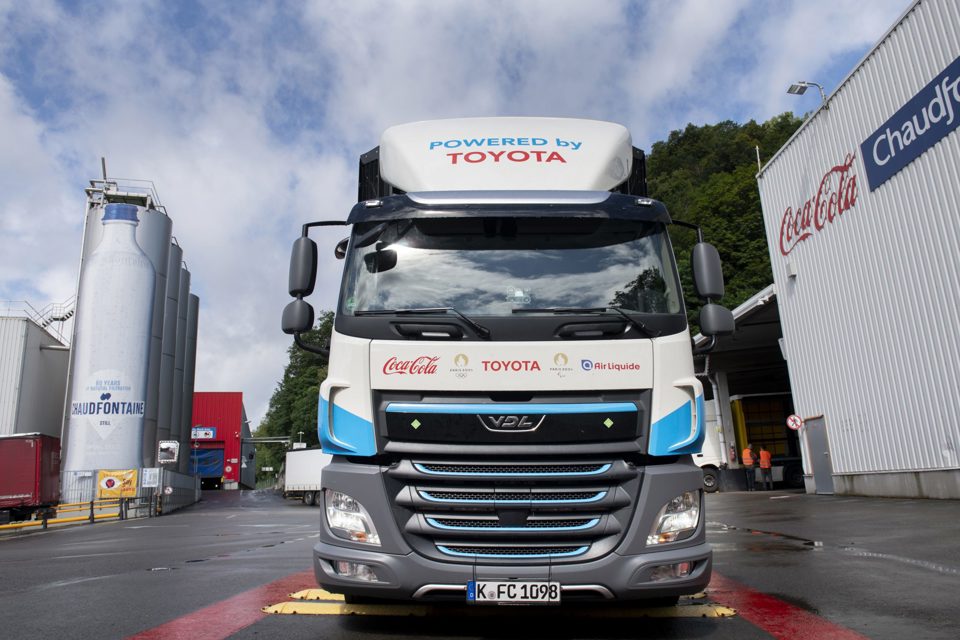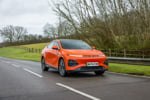Coca-Cola is testing a new Toyota hydrogen-fuelled truck as part of the drinks company’s supply operations.
The truck’s fuel cell system uses modules which combine hydrogen and oxygen molecules to produce water, simultaneously generating electricity. As a result, water is the only tailpipe emission.
Air Liquide is supplying the project with hydrogen sourced from renewables.
Eric Desbonnets, vice president Paris 2024 operations for Coca-Cola, said: “We are pleased to partner with Toyota and Air Liquide to test hydrogen solutions for our long-distance logistics operations.
“We want to learn from this experience as we continue to work towards reducing our carbon footprint.”
Erwin Penfornis, vice president hydrogen energy world business line at Air Liquide, explained that the trials will demonstrate the “relevance” of hydrogen for heavy-duty mobility.
“With a growing call for products with a low carbon transportation footprint, hydrogen is particularly well-suited to long-distance transportation, providing flexibility and productivity,” he added.

To help speed up the expansion of hydrogen technology, Thiebault Pacquet, vice president research and development for Toyota Motor Europe, says that the manufacturer is expanding the use of its Toyota fuel cell module beyond passenger cars and into trucks, buses, coaches, trains and boats.
“It is a great pleasure to collaborate with like-minded partners and demonstrate our shared vision of sustainable mobility,” he added.
“The insights gained from these proofs-of-concept will serve as crucial milestones on our path towards achieving zero tailpipe carbon emissions in our logistics operations by 2040.”





















Login to comment
Comments
No comments have been made yet.